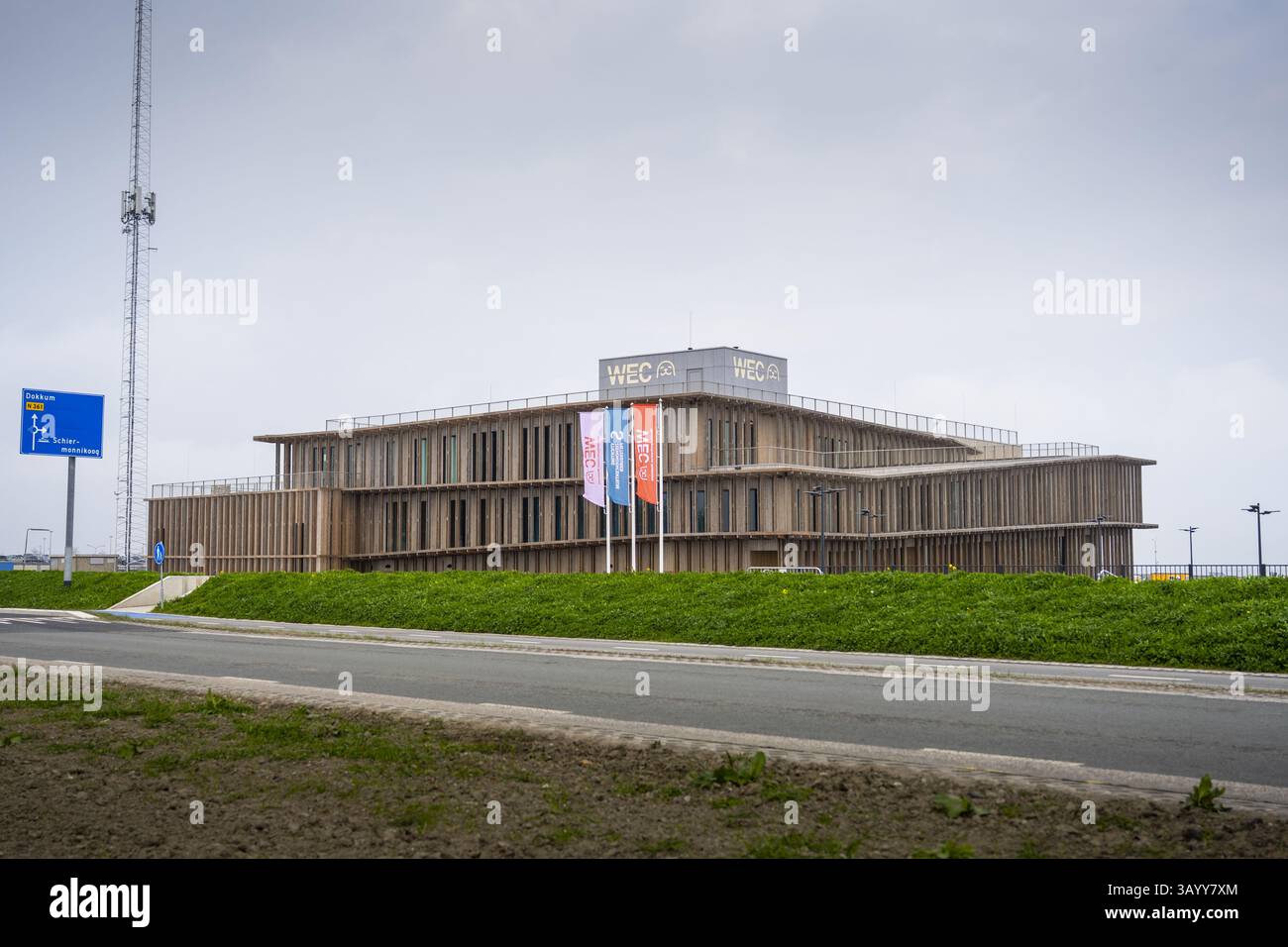Pieterburen Seal Rescue Center: A 50-Year Legacy Concludes

Table of Contents
A Half-Century of Seal Rescue and Rehabilitation
The Pieterburen Seal Rescue Center opened its doors in 1973, a humble beginning driven by a passionate group dedicated to helping the seals of the Wadden Sea. Its early years were marked by a focus on providing immediate care for injured pups and adults, often victims of fishing gear entanglement or pollution. Over the decades, the center has evolved, expanding its capabilities and expertise dramatically.
Key milestones showcasing the center's remarkable journey include:
- Over 25,000 seals rescued and rehabilitated: The Pieterburen Seal Rescue Center has successfully nursed thousands of seals back to health, enabling their return to the wild. This impressive number represents a substantial contribution to maintaining the Dutch seal population.
- Development of innovative rehabilitation techniques: The center's veterinarians and staff pioneered several innovative approaches to seal rehabilitation, improving survival rates and enhancing the overall quality of care. This includes specialized diets, advanced veterinary treatments, and innovative pool designs to simulate the natural environment.
- Significant contributions to scientific research on seals: The Pieterburen Seal Rescue Center was a hub for scientific research, collecting invaluable data on seal health, behavior, and population dynamics. This research has been crucial in informing conservation strategies and policies.
- Extensive educational outreach programs: The center played a vital role in educating the public about seals and the importance of marine conservation. Through guided tours, educational materials, and public awareness campaigns, the center fostered a deeper understanding and appreciation for these magnificent creatures.
The Center's Impact on Seal Conservation in the Netherlands
The Pieterburen Seal Rescue Center's impact extends far beyond individual seal rescues. It played a pivotal role in protecting the seal population in the Netherlands, acting as a cornerstone of Dutch seal conservation.
The center's contributions to understanding and mitigating threats to seals include:
- Extensive research into seal diseases and mortality: The center's research provided critical insights into the health challenges faced by seal populations, enabling early intervention and prevention strategies.
- Collaboration with other conservation organizations: The Pieterburen Seal Rescue Center fostered strong partnerships with national and international organizations, sharing expertise and collaborating on conservation projects. This collaborative approach maximized impact.
- Successful public awareness campaigns promoting seal protection: Through engaging educational programs, the center has successfully raised public awareness about threats to seals and encouraged responsible behaviors to protect these animals.
- Advocacy for improved seal habitats and fishing practices: The center actively advocated for policies that promote healthier seal habitats and reduce conflicts between seals and fisheries, contributing to the long-term health of seal populations.
Reasons for Closure and the Future of Seal Rescue in the Region
The closure of the Pieterburen Seal Rescue Center is a significant loss for Dutch wildlife conservation. Several factors contributed to this difficult decision, primarily centering around financial sustainability and staffing challenges. Long-term funding has become increasingly difficult to secure, impacting the center's ability to maintain its high standards of care and continue its essential research programs.
Looking ahead, the future of seal rescue efforts in the region remains uncertain. While there are no immediate plans for another organization to take over the full operation of the Pieterburen center, discussions are underway to ensure that the expertise and experience gained over 50 years are not lost. The focus is on:
- Securing funding for archiving the center's extensive research data and records: This invaluable information will be vital for future seal conservation efforts.
- Exploring potential collaborations with other wildlife rehabilitation centers: Existing organizations may be able to absorb some of the Pieterburen Seal Rescue Center's functions.
- Assessing the impact on local employment and tourism: The closure will have a significant economic impact on the local community, and mitigation strategies are being explored.
Remembering the Legacy of the Pieterburen Seal Rescue Center
The closure of the Pieterburen Seal Rescue Center is deeply felt by staff, volunteers, and the community who have supported it for decades. The emotional impact of this closure is significant, as many have dedicated their lives to the center's mission.
Despite the sadness, the Pieterburen Seal Rescue Center’s lasting contributions must be celebrated. Its legacy is one of:
- Countless successful seal rescues and rehabilitation stories: Each rescued seal represents a testament to the dedication and expertise of the center's staff and volunteers.
- A profound impact on public awareness and appreciation for seals: The center's educational outreach has significantly impacted the public’s understanding and empathy towards these marine mammals.
- A vital role as a tourist attraction and educational resource: Thousands of visitors learned about seal conservation at the center, leaving with a greater appreciation for marine wildlife.
- A half-century of expertise and knowledge in seal conservation: The Pieterburen Seal Rescue Center's legacy of knowledge will continue to inform and inspire future conservation efforts.
Conclusion:
The Pieterburen Seal Rescue Center's closure marks the end of an era in Dutch wildlife conservation. For 50 years, it provided vital care for injured seals and played a crucial role in protecting the seal population of the Wadden Sea. While its closure is regrettable, its legacy of dedication, research, and conservation will continue to inspire future efforts. Learn more about the Pieterburen Seal Rescue Center's remarkable history and consider supporting other wildlife rehabilitation centers working to protect seals and other marine animals. Let's continue the important work of seal rescue and conservation in the Netherlands. Remember the Pieterburen Seal Rescue Center’s legacy and help ensure the future of seal conservation.

Featured Posts
-
 Pieterburen Seal Rescue Center A 50 Year Legacy Concludes
May 13, 2025
Pieterburen Seal Rescue Center A 50 Year Legacy Concludes
May 13, 2025 -
 Four Walls Announces New Ceo
May 13, 2025
Four Walls Announces New Ceo
May 13, 2025 -
 Scarlett Johansson Visszaterese A Marvel Be A Kult Statusz Es A Joevo
May 13, 2025
Scarlett Johansson Visszaterese A Marvel Be A Kult Statusz Es A Joevo
May 13, 2025 -
 Simion I Moldova Kostyuk Prizyvaet Sandu Otmenit Zapret Na Vyezd
May 13, 2025
Simion I Moldova Kostyuk Prizyvaet Sandu Otmenit Zapret Na Vyezd
May 13, 2025 -
 Uppgifter Vem Tar Oever Atalanta
May 13, 2025
Uppgifter Vem Tar Oever Atalanta
May 13, 2025
